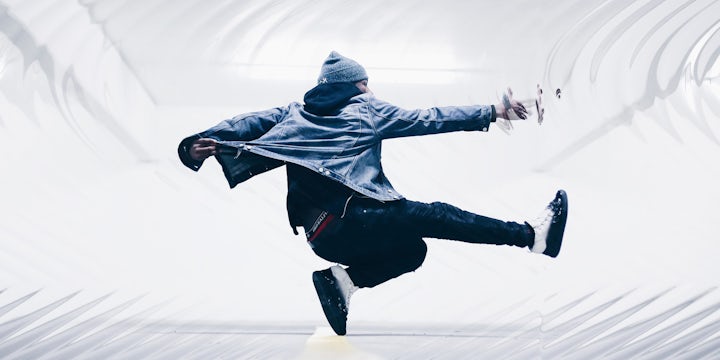
The art of writing an effective creative brief.
Guides & Inspiration • 11min read
Guides & Inspiration • Written by Harry Preston, MD - Australia & New Zealand
The wine and spirits producer created the Blue Studio concept, with a wide variety of content created in-house at 19 studio locations worldwide.
We spoke to Derek Oliver, Marketing Director for Jacob’s Creek and Zac Carmody, the Production Manager for Blue Studios in Sydney, about the challenges and benefits of in-housing, and how they use Genero to scale their video production while maintaining a lean internal team.
Read the full interview below the video.
Derek: We’ve got very specific brand objectives for Jacob’s Creek across the globe but at a holistic level the challenges really do remain around two key areas – consumer relevance and brand distinctiveness.
If you think about consumer relevance, there’s everything from traditional brand positioning and advertising campaigns to delivering on innovation and new product development. One of the key things that’s really clear is that we need the ability to be agile as a brand and as a brand team.
So for us, the biggest challenge that we face at that level is having our agency partners and services providers be able to deliver in an agile way to meet those challenges.
Derek: One of the fundamental changes we’ve made as a business and as a global marketing team over the last 12 – 18 months is the creation of our in-house team – Blue Studios. They’re very much just one key part of our agency structure but there was a clear necessity for us to be able to deliver in a more agile and efficient way, and having an in-house team enables us to do so.
Zac: The structure of our in-house team is four creatives: a copywriter, a video editor, a designer and myself as production manager. The framework is structured in a way that we use our agencies for strategy and big thinking, bringing our creative and production in-house and scaling up using our supplier network.

Essentially we work with the agency on the idea and creation of the brief, and use our supplier network to execute depending on the content. Genero is one of those suppliers and allows us to easily scale with access to their network of creatives.
Derek: There are many benefits for us as a global marketing team in moving to this model. Having an in-house team that’s constantly working on our brands means that they become experts on our brands, and there are a lot of synergies there which is great.
And secondly they provide the internal expertise to us with great trust and transparency, to drive traffic and get the best results from a content and creative view point.
Zac: Being an in-house team means that we’re closer to the brands and can also take ownership of the content. This model also allows us to produce very high quality work with time and cost saving efficiencies.
Zac: We tested out this framework on some smaller social content briefs and once we had proof of concept, we rolled it out across the business. We had to build trust with the brand teams by taking those smaller projects and exploding them and making them amazing, so that they could see the credentials over time.
Right now we’re honing the framework and making sure it’s as efficient as possible.
Zac: One of the main challenges we’ve faced is not having an account service person in the mix, so we’ve addressed this by training the broader team on how to build a great brief.
Capacity is also a big challenge for us, so we use Genero to scale without having to increase our core team.
Derek: For us Genero offers us the opportunity to tap into a community of creative partners in a way that allows us transparency and control. Which I think in today’s world as a brand, as a business and as a client is really important.
An example of this is our big master brand campaign. Originally produced through a traditional agency model, we worked with Genero on the adaptation of the assets for all the various channels and platforms, which helped us to be more efficient.
In addition, with the fragmented nature of the wine segment, innovation is key to growth and we develop a lot of new wine innovations on an ongoing basis. With new innovation comes supporting campaigns and supporting assets but they have to be created in an agile way particularly at go to market speed. Our ability to tap into Genero with very defined budgets, very defined and clear and powerful briefs allows us to work very efficiently.
Zac: Genero has allowed us to scale into our bigger projects using some fantastic talent, and effectively operate like a full service creative and production agency. A real benefit is having access to extraordinarily talented filmmakers and producers, which is something that we wouldn’t normally have.

Guides & Inspiration • 11min read

Guides & Inspiration • 4min read